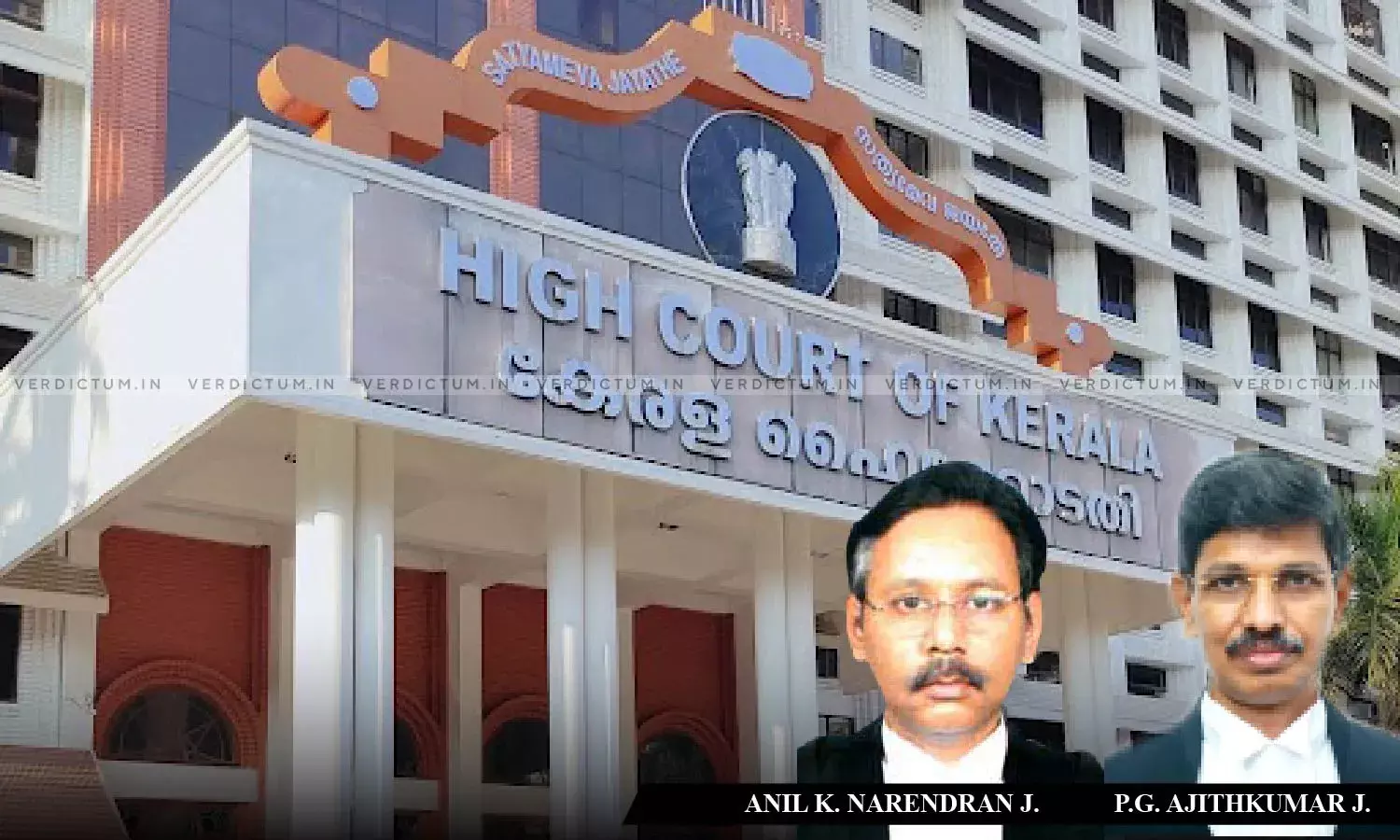Kerala Police Act| When Departmental Enquiries Were Initiated On Same Set Of Facts As In Criminal Case That Ended In Acquittal, Then No Punishment Could Be Imposed: Kerala HC
The Kerala High Court reiterated that when the departmental enquiries were initiated under the Kerala Police Act on the same set of facts as in the criminal case which ended in an acquittal, then no punishment could be imposed on the delinquent.
The Court was hearing an Original Petition under Article 227 of the Constitution against an Order of the Administrative Tribunal directing a police constable's reinstatement with all consequential service benefits, including promotion and back wages. It was alleged that the constable had committed theft of five barrels of sandalwood oil that was kept in the lockup as it was contraband in a crime.
A Division Bench of Justice Anil K. Narendran and Justice P.G. Ajithkumar, noting the bar in the Kerala Police Act, 2011 and its interpretation by their own High Court in previous cases, found "no reason to interfere with the said finding in the exercise of the powers under Article 227 of the Constitution." The Court upheld the Administrative Tribunal's Order entitling the constable to get all service benefits, but limited the back wages payable to him to three years.
Senior Government Pleader B. Unnikrishna Kaimal appeared for the Superintendent Of Police, Kasargod District and Advocate M. Sasindran appeared for the Respondent.
A disciplinary inquiry conducted against the constable found the constable guilty and the disciplinary authority, the District Superintendent of Police, removed him from service. His appeals before senior police officials were subsequently dismissed. Aggrieved, the constable moved the High Court which transferred his case to the Kerala Administrative Tribunal.
The constable contended that he was acquitted by the Court of Chief Judicial Magistrate in the criminal prosecution concerning the same matter and hence, no disciplinary action was possible against him owing to the provisions of Section 101(8) of the Kerala Police Act, 2011.
Section 108(1) provides that when a departmental inquiry is initiated on the same facts as in a criminal case which ends in acquittal, then no punishment can be imposed on the delinquent. Noting a previous Judgment by itself, the Court said, "It was explained that the purport of the provision is that, though the departmental proceedings could be initiated in the same matter based on which the criminal proceedings also arose, once the delinquent is exonerated by the criminal court after trial, then he shall not be subjected to penalties on the basis of the same set of facts."
On the same provision, the Court clarified, "Of course, if more materials are brought about in the departmental enquiry and there is difference in the proved facts, punishment of the delinquent in the disciplinary proceedings may be possible."
The Tribunal considered the constable's contention in light of Supreme Court's Judgements and concluded that the penalty imposed on him was untenable. It held that the matter in issue in both the disciplinary proceedings and the criminal prosecution were the same.
The Court additionally noted that the disciplinary proceedings in the case were initiated before the commencement of the Kerala Police Act, 2011, "but when the proceedings (have) been pending, the respondent is entitled to get the benefit of the said provision.
The Court noted that the Supreme Court in Paul Anthony v. Bharat Gold Mines (1999) held that acquittal in the criminal case has the inevitable consequence of absolving the accused from the departmental proceedings. It was further held that the distinction, which is usually drawn as between the departmental proceedings and the criminal case on the basis of approach and burden of proof, is that if more materials are brought about in the departmental inquiry and there is marked difference in the proved facts, punishment of the delinquent in the disciplinary proceedings is possible.
Cause Title: Superintendent Of Police v. V.V. Kumaran [2024:KER:79223]
Click here to read/download the Judgment




